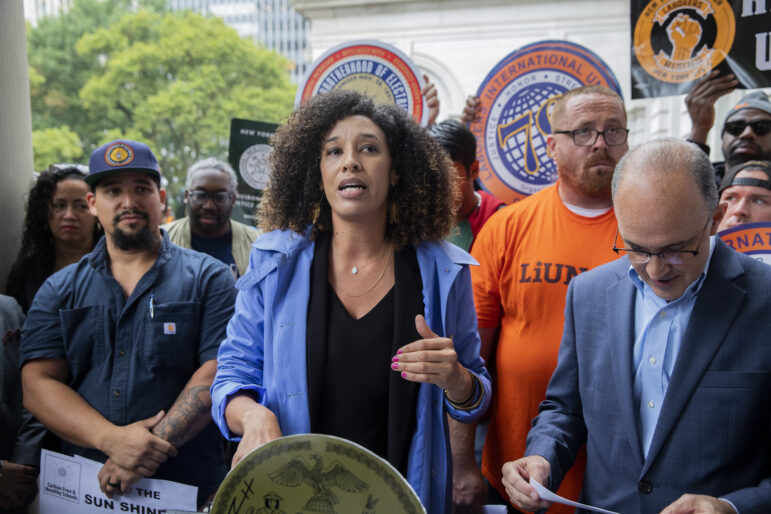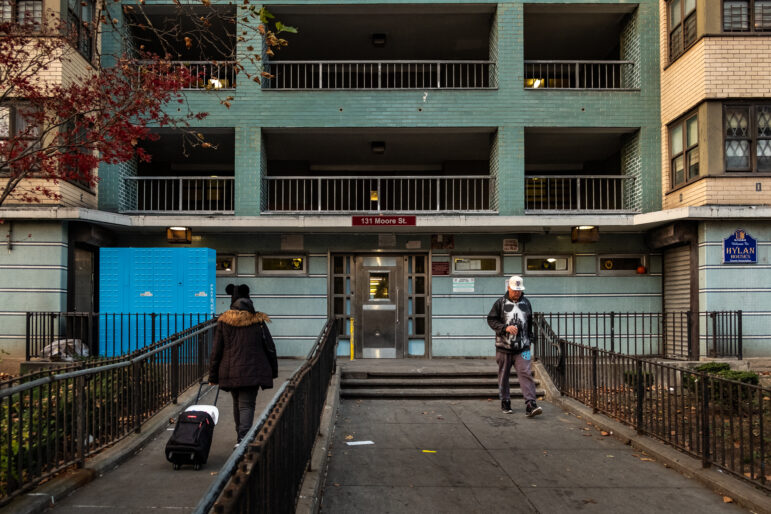A blind 76-year-old woman whom doctors found to be delirious and psychotic was denied a guardian by the city agency charged with protecting and providing home care services to elderly and disabled adults, despite a physician’s referral.
That’s just one of several cases in which Adult Protective Services has failed its elderly and disabled clients, say doctors from Mount Sinai’s Visiting Doctors Program (VDP) and nurses from the Visiting Nurse Service of New York, both of which make house calls to provide medical care to homebound men and women in Manhattan.
The two organizations have issued a formal complaint with Public Advocate Betsy Gotbaum, who has demanded an investigation into what she called the agency’s “egregious failures” to care for a vulnerable population. “The agency is unfortunately a textbook case of mismanagement and negligence,” said Gotbaum.
Jeremy Boal, co-director of the VDP, said these cases exemplified some of the worst failures to provide services to the most vulnerable people, most of whom are disabled and don’t have family members to care for them. Yet he was hesitant to assign blame. “We would like to stress that problems with this agency are not the fault of any one person, and pre-date the current administration by at least a decade,” said Boal.
APS referred requests for comment to its parent agency, the Human Resources Administration. Spokespeople for HRA did not respond to repeated phone calls for comment. But the city does track some basic information: the 2004 Mayor’s Management Report noted that more than 87 percent of referrals to APS were visited within three days. That’s 2 percent higher that the state’s target of 85 percent.
Boal said that staffers with the Visiting Doctors Program decided to file the complaint because they had exhausted all other methods of working with Adult Protective Services’ to improve its ability to provide adequate care.
Dr. Ana Bohm, who has worked with VDP for six months, cited communication problems between case managers and doctors with VDP. “At the end of the day you’re talking to someone who hasn’t even seen the patient,” said Bohm.
Adult Protective Services has three main units: psychiatric assessment, legal guardianship, and administrative. “These areas don’t seem to communicate with each other,” said Tracy Farosich, a nurse practitioner, who has worked with the Visiting Doctors Program for five years.
As VDP has grown from two doctors to a medical staff of 17 over the last 10 years, so has its contact with APS. “When you have enough people in a program doing work for long enough and you’re still coming up against brick walls, you finally decide to do something,” said Farosich.
Before any specific recommendations can be made, Gotbaum said the agency needs to answer questions such as why the answering machine is too full to take messages and why there are such lengthy delays in services. She said the ultimate oversight for Adult Protective Services might end up under the state’s jurisdiction.








